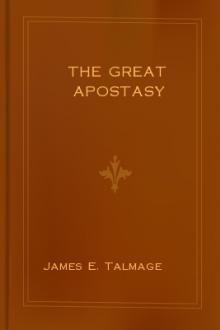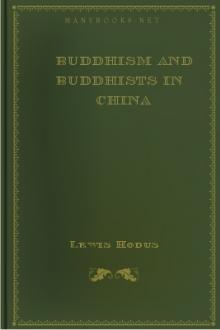Genre Philosophy. Page - 6
All entire books of the Philosophy genre on your device.

dialogue is what would be called in the language of Thrasyllus tentative or inquisitive. The subject is continued in the Phaedrus and Symposium, and treated, with a manifest reference to the Lysis, in the eighth and ninth books of the Nicomachean Ethics of Aristotle. As in other writings of Plato (for example, the Republic), there is a progress from unconscious morality, illustrated by the friendship of the two youths, and also by the sayings of the poets ('who are our fathers in wisdom,' and

mits this question because he does not consider that it has any more bearing upon the essentials of religion, than have the theories we may hold about the relation of God and the moral law to the starry universe. The latter is a question for the theologian, the former for the psychologist. Whether we are mortal or immortaea of this book very roughly, these two antagonistic typical conceptions of God may be best contrasted by speaking of one of them as God-as-Nature or the Creator, and of the

cut off from the race of Israel with all the prescribed curses of excommunication upon his head.Spinoza was not present when excommunication was pronounced upon him. He had left Amsterdam to stay with some Collegiant friends on the Ouwerkerk road, for, so one tradition relates, an attempt had been made by one of the over-righteous upon Spinoza's life soon after he became an object of official displeasure. Although Spinoza was, throughout his life, ready to suffer the consequences of his

is an ego, but how all-important it is that one be a self-conscious ego, -- a self-conscious, self-willed person.Those not self-conscious and self-willed are constantly acting from self-interested motives, but clothing these in various garbs. Watch those people closely in the light of Stirner's teaching, and they seem to be hypocrites, they have so many good moral and religious plans of which self-interest is at the end and bottom; but they, we may believe, do not know that this is more than a

and his helpers go from town to town and fromcity to city and work up this excitation as a business. They are paidfor their services a thousand dollars a week, or down to what they canget from collections. Sometimes they work on a guaranty, and at othertimes on a percentage or contingent fee, or both.Towns especially in need of Mr. Chapman's assistance will please sendfor circulars, terms and testimonials. No souls saved--no pay. The basic element of the revival is hypnotism. The scheme of

he human organism, and beyond the range of muscular action, should be subjected to further scientific examination, with a view to ascertaining its true source, nature, and power."[3]One selection is now given from the Minutes of this Sub-Committee, illustrating the nature of the Evidence that came before them:-- "EXPERIMENT XXXVIII., Dec. 28th [1869].--Eight members present. Phenomena: Rapping sounds from the table and floor, and movements of the table, with and without contact. The

e chose twelve men, whom He ordained to the apostleship:--"And He ordained twelve, that they should be with Him, and that He might send them forth to preach."--(Mark 3:14.) Again: "And when it was day, he called unto him his disciples: and of them he chose twelve whom also he named apostles."--(Luke 6:13; compare Matt. 10:1, 2.) The twelve special witnesses of Him and His work were sent out to preach in the several cities of the Jews. On this, their first mission, they were

s. They were careful to preserve the number of fighting men and women at 20,000, which is equal to that of the present military force. And so they passed their lives as guardians of the citizens and leaders of the Hellenes. They were a just and famous race, celebrated for their beauty and virtue all over Europe and Asia.And now I will speak to you of their adversaries, but first I ought to explain that the Greek names were given to Solon in an Egyptian form, and he enquired their meaning and

teraryability and religious fervor to the spreading of the new religion andits success was in no small measure due to their efforts. As a result ofthis early association the tenets of the two religions seemed so muchalike that various emperors called assemblies of Buddhists and Taoistswith the intention of effecting a union of the two religions into one.If the emperor was under the influence of Buddhism he tried to force allTaoists to become Buddhists. If he was favorable to Taoism he tried

beginning anti-monastic. It is not rare for history to have similar contradictions to record. The meek Galilean who preached the religion of a personal revelation, without ceremonial or dogmatic law, triumphed only on condition of being conquered, and of permitting his words of spirit and life to be confiscated by a church essentially dogmatic and sacerdotal.In the same way the Franciscan movement was originally, if not the protest of the Christian consciousness against monachism, at least the